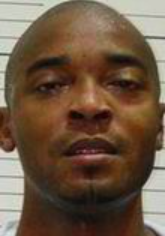 Murderpedia
Murderpedia
Thomas
A death row inmate will ask a federal appeals court to review his case Wednesday after his attorneys discovered law enforcement officials secretly paid a key witness $750 to testify, a fact prosecutors kept from defense attorneys and jurors.
Andrew Thomas was convicted in 2001 of the 1997 shooting death of an armored truck driver who was leaving a Summer Avenue Walgreens with the store’s deposit. Thomas has maintained his innocence through the years.
He has appealed his case through the Tennessee Supreme Court and to a lower-level federal court, though all of his appeals have, so far, been denied.
Oral arguments on his appeal will begin Wednesday in the U.S. Court of Appeals for the Sixth Circuit at the University of Memphis Law School.
A centerpiece to the arguments will be a piece of evidence, a statement from the state’s key witness in the matter, Angela Jackson. During the original trial, overseen by the U.S. Attorney’s office, Jackson repeatedly testified that she did not receive a reward or “one red cent” for her testimony, which linked Thomas to the crime.
However, after the Tennessee Supreme Court ruling in 2011, Thomas’ attorneys discovered “by happenstance” that law enforcement agents secretly paid $750 to Jackson for her statement.
Shelby County District Attorney General Amy Weirich was the lead prosecutor on the case. She did not disclose the fact that Jackson had been paid to Thomas’ attorneys or to jury members during the trial. It is not known whether or not Weirich knew about the payment. The payment was made while the case was still in the hands of the U.S. Attorney’s office, according to a source in Weirich’s office.
Questions to be heard Wednesday will include whether or not the outcome of the trial would have been different with the knowledge of the $750 payment. Was Jackson’s testimony false and if it was, did it affect the trial outcome? Did Weirich break evidence laws by not disclosing the payment to defense attorneys and the jury?
A brief filed in the case from attorneys with the National Association of Criminal Defense Lawyers says a jury would have certainly viewed Jackson’s statements differently if they know she had been paid.
“A paid informant was allowed to falsely present herself as a financially disinterested witness and the jury was left ignorant of her true role in Mr. Thomas’ prosecution,” reads the brief. “If the jury had been informed that Ms. Jackson had been paid for her performance, the jury may have assessed the evidence differently.”
Another point of interest to be heard Wednesday is a review of the prosecution’s characterization of Thomas and his co-defendant, Anthony Bond, as “greed and evil.” Prosecutors used the phrase 21 times in opening and closing arguments, according to court papers.